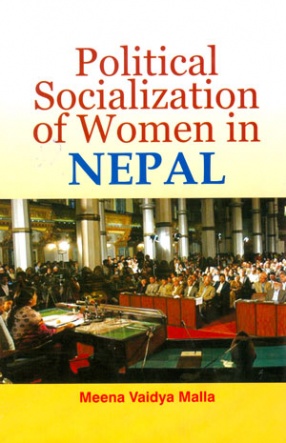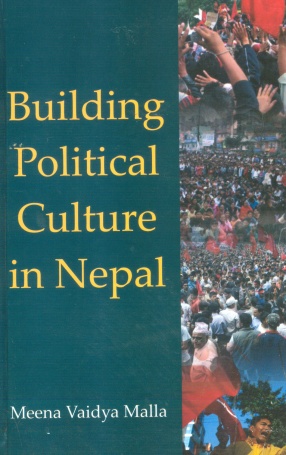Political Socialization of Women in Nepal
This book is on the political socialization of women in Nepal which is a prerequisite for understanding the actual role, status, and participation of women in politics. The objective of the study is to know how Nepali women are socialized politically within different micro and macro spheres, i.e., family, religion, law, educational institution, media and political party. The study attempts to highlights the disparity in socialization of women by reflecting upon the ways in which they are brought up and socialized in the question of political knowledge and orientation.
In a patriarchal and male dominated society, the inadequate and unfair representation in politics is a historical hard reality because the principle of inequality exerts its influence in the society and socialization process. Consequently, women are found in an absolutely mharginal position in the political and public spheres. Their access to knowledge, skill and independent political activity is limited.
This book gives readers a powerful way to understand that women like their counterparts are capable of rational behaviour. But their inherent rationality, however has not been nurtured by an appropriate education, training and socialization. It is difficult to see how a regime could remain legitimate and stable without its subjects being socialized into sets of relevant norms. In circumstances of this sort, how can we socialize Nepali women politically whose political orientation has never been understood in their own rights? If women in Nepal hold little more than half of the total population (50.05 percent) for the functioning of system, it becomes all the more important to understand how women learn about politics where they acquire knowledge about politics and how they are socialized into political processes. These are the questions that are set out to answer in this special issue along with suggesting the ways how women could be trained and developed, so that they become well functioning members of the political processes in the nation.
Get it now and save 10%
BECOME A MEMBER








Bibliographic information
Tags